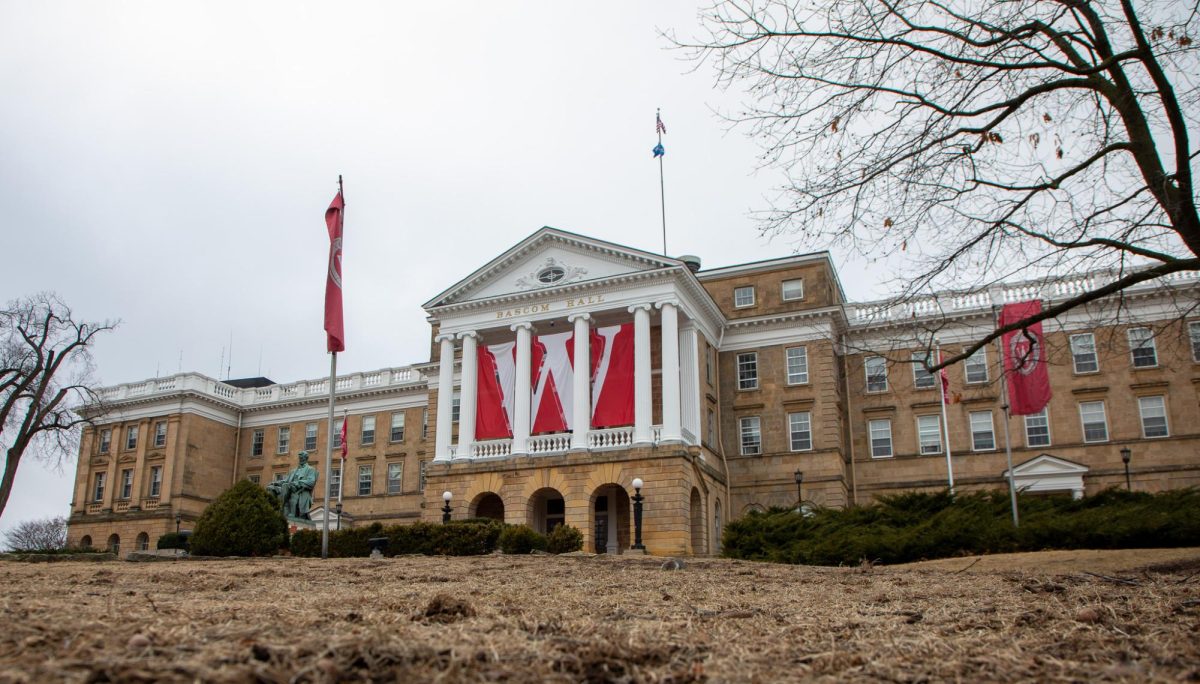Spring elections for the Associated Students of Madison, who are responsible for allocating nearly $50 million in segregated fees each year, begin March 10. University of Wisconsin students can cast their ballots online starting at 8 a.m. March 10 until 5 p.m. March 12.
ASM Chair Dominic Zappia said the group is the sole student-shared governance body on campus, representing students in university negotiations.
ASM is comprised of 33 seats. Each college within UW has an allocation of seats based on its enrollment, and these allocated seats may only be voted on by members of the respective college.
Candidates were required to declare their candidacy by Feb. 14 through the ASM website and develop a platform to advocate about the issues on campus that they feel most passionately about.
Maddie Schneiter and Alisha Latham, candidates for seats in the College of Letters and Science, discussed their specific campaign goals, while candidate Renata Almanchee provided a written statement about her campaign.
Schneiter, a freshman majoring in psychology, wants to be approachable and reachable to students in what would be her first term at ASM. Schneiter said she has always enjoyed bringing different opinions together by remaining neutral.
Almanchee, a freshman and neurobiology major, believes a one-size-fits-all approach doesn’t work anymore for everybody and has goals to bring personalized care and equity to ASM if elected.
“One idea I have for now is ensuring that students with disabilities have the same access to opportunities, resources and support as their peers,” Almanchee said in a written statement to The Badger Herald.
Currently working in the intern program through ASM, pre-law sophomore Latham is running for housing access and affordability, protections for free speech and expansion of mental health resources via University Health Services.
The full candidate matrix for each college and its candidates can be found on the ASM website.
Once elected, members typically find themselves working to advance one of three pillars, which are direct action, shared governance and service.
“Direct action is the mechanism by which we act on student voice,” Zappia said. “Last fall we pushed against the DEI deal that exchanged DEI classifications for the Engineering Building or [direct action] can be things like libraries open 24/7.”
Latham decided to get involved with ASM after feeling unable to enact change in a meaningful way while a part of other student organizations. She said in her experience, students at UW have a unique opportunity to enact change if they choose to get involved in ASM.
Wisconsin is the only state to ensure elected students have legal rights to propose policy or budget changes for segregated tuition fees, via Statute 36.09(5.) To take advantage of this statute, members apply to shared governance committees, which consist of UW faculty and students.
“Shared governance is the idea that students have a say in university matters, right? It’s written in state law,” Zappia said. “Students are empowered at UW’s campus unlike anywhere else.”
Despite the importance of ASM’s function for the student body, Schneiter said her peers were unaware of its functions and upcoming election as she began campaigning.
Almachnee said she faced many hurdles while campaigning, due to how quiet ASM’s buzz is around campus, especially with freshmen.
“I just recently figured out what ASM was this semester,” Schneiter said. “For such a big role, I kind of wish they made it more of a thing.”
This is an issue for students across campus, with voter turnout for last year’s spring election sitting at 3%, according to the ASM election results.
“We are planning to utilize social media, as we have in the past, posting more on our Instagram accounts, trying to get UW-Madison to repost our stuff there,” Zappia said. “Even if you don’t know any of the candidates, we have ballot referenda questions that students should know about.”
Referendums on the ballot this spring include increasing funding for mental health services, bonding authority for student housing, installation of lights along the Lakeshore Path, increasing time between classes and establishing a sustainability Canvas course on the student Canvas home page, according to the ASM election documents.
Open committee meetings held by ASM are another option for students to be more engaged, Latham and Zappia said. All students are invited to attend meetings for any of the four open committees, which include the Justice, Equity and Belonging, Sustainability, Legislative Affairs and Shared Governance Committees.
“Each open committee works differently, but most of them operate kind of like workshops, giving students space to work on student-made campaigns, which is really really exciting,” Zappia said.
Students can cast their votes for the ASM election on Monday, more information about the process and candidates can be found on the ASM website.



